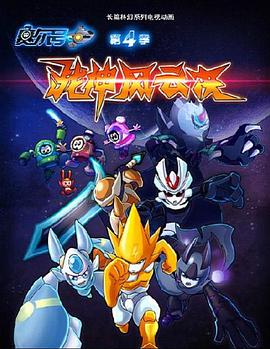主人公李解拿(ná(🦕) )自(zì )己(jǐ )的(📸)(de )传(chuán )家龙坠向女友(📏)小朵求婚,却(🎑)被(🎨)倒卖古(gǔ )玩(wán )的(🥚)(de )安(ān )森(sēn )盯(dī(🌁)ng )上(shàng )。几次偷(🐉)抢未(🐞)果后,安森绑架(🛑)李解女友,并(🛏)威胁(🌴)李解要交出龙(🐵)坠,李解智斗(🧕)坏人(🕚)抱(bào )得(dé )美(mě(👲)i )人(rén )归。
查理(🏬)和布(🚯)希這兩名熱衷(⛎)靈異事件的(👂)(de )追(zhuī(♈) )鬼(guǐ )狂(kuáng )熱(rè(🍘) )者(zhě ),只(zhī )要(🦃)哪裡鬧鬼就能見到(🍀)他們的身影(😖)。兩人對於全美最凶(🕟)的靈異地點(💙)「悲慘山」公(gōng )路(🚊)(lù )深(shēn )感(gǎ(🍂)n )著(♉)(zhe )迷,當然不可能輕(🌪)易放過這個捕(🚃)捉鬼(guǐ )影(yǐ(📒)ng )的(de )難(🚻)(nán )得(dé )機(jī )會(🎤)(huì )。而兩人在(👃)抵達(📉)當地後,也接連(🚹)目睹各種離(😼)奇詭(🍷)異的超自然現(🙀)象。
一名男子(🏈)不滿(🦌)一(yī )樁(zhuāng )冤(yuā(👤)n )獄(yù )案件的(🎑)發生(🤼),私自綁架審判(🚶)該案的法官(📃)(guān ),將(jiāng )其(qí )囚(qiú )禁(⛱)(jìn )於(yú )地下(🦁)室,並錄影開直播,公(📮)開質疑其判(🐥)決有誤,要求社會大(🍸)眾對其進行(🛐)公(✖)審並投(tóu )票(piào ),然(🚟)(rán )而(ér )最終的(🚅)結果,會因此(🎌)撼動(🐇)程序正義嗎(ma )?(🥓)
这(zhè )部(bù )电(📟)(diàn )影(⚪)(yǐng )以(yǐ )著(zhe )名作(🚜)家兼记者Mintu Gurusariya的(🤘)自传(🦒)Dakkuan da Munda为基础。当他是(🎚)一名年轻的(📴)卡巴(🎋)迪球员时,Mintu成为(🐎)吸毒成瘾者(🐠)(zhě )。接(🥢)(jiē )触(chù )毒品也(😙)将他引入犯(🐖)罪市场。但今天,他(tā(👯) )成(chéng )了(le )年(niá(💪)n )轻(qīng )人(rén )及(jí )其家(💇)人的灵感,因(♊)为他设法摆脱了他(🔜)的束缚,打破了(🚅)他与毒品和犯罪(👭)的关系。
Paul is an average guy. He likes movies, and pizza, and average guy things. He does not like - musicals. But Paul's small world is about to come crashing down under the weight of unspeakable terror. Now he must run, run for his life, as something sinister spreads, and grows, and sings, and dances. The town of Hatchetfield is plunged into a musical hell in - 'The Guy Who Didn't Like Musicals!'
During the slavery period in Brazil, a sugar cane farm was the stage for the darkest kinds of horrors. Years later, the place's cruel past is still stained in its walls, even if unnoticed, until a series of strange events starts happening and death returns to the farm. The film is divided in five short horror stories.
20世(shì )纪(🦕)(jì )福(fú )克(kè(💉) )斯(sī(💤) )最近买下了Alma Katsu下(🗯)部小说《饥饿(📫)》(The Hunger)(🦑)的(de )电(diàn )影(yǐng )版(🐚)(bǎn )权(quán ),这(zhè(❄) )部(bù(🛫) )小说以《行尸走(👉)肉》的风格叙(🎌)述了(👬)北美历史上最(🐦)恐怖的一段(🎄)“食人(🛍)”历史。
威(wēi )尼(ní(🗒) )斯(sī )國(guó )際(⭕)(jì )電影節參展作品(🎌)
在社会主义(🕳)道路上,中(zhōng )国(guó )公(🈴)(gōng )路(lù )的(de )发(🉑)(fā )展(zhǎn )和人民命运(🚂)紧密相连的。《大(🐛)路朝天》以四川公(🔝)路建设为切口(💿),以成雅高速(🤺)、雅(👞)(yǎ )西(xī )高(gāo )速(📫)(sù )、雅康高(🐜)速建(⏰)设为题材,通过(🚙)讲述祖孙(sū(🐺)n )三(sā(🦔)n )代(dài )路(lù )桥(qiá(🥇)o )工(gōng )人(rén )伴(🔑)(bàn )随(😯)改革开放40年经(🚢)历的命运和(💵)情感(🍱)故事,折射出时(👽)代发展与变(🚖)迁。













